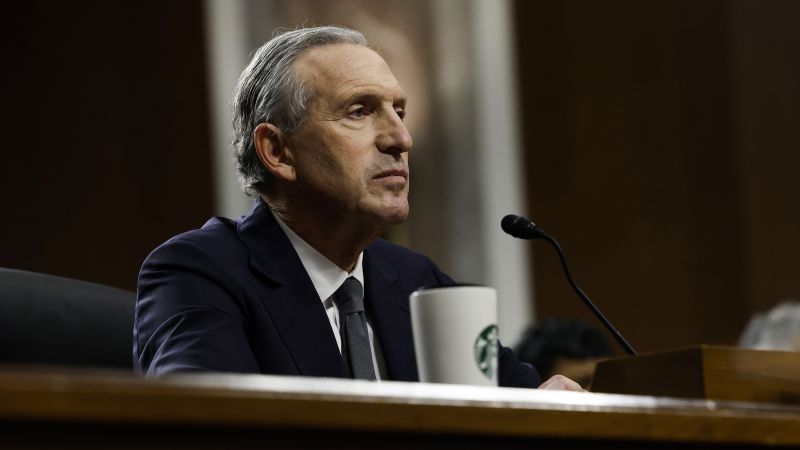In 2022, Starbucks’ Howard Schultz, who was interim CEO at the time, was found to have violated federal labor law by making a coercive threat to a California barista who raised concerns about unionization. The National Labor Relations Board determined that Schultz’s statement telling the barista to work for another company if she wasn’t happy at Starbucks was unlawful. This decision highlights the contentious relationship Starbucks has had with organized labor as more workers at its stores unionize. Schultz’s statement was made during a company event in Long Beach, California, where barista Madison Hall attempted to bring up the benefits of unionization and Starbucks’ alleged unfair labor practices.
Despite the NLRB’s decision, Starbucks disagreed and stated that the focus is on training and supporting managers to ensure respect for workers’ rights to organize. Schultz, who stepped down as CEO in March 2023 but remains tied to the company, was recognized by the NLRB as a “legendary leader” which could have exacerbated the coercive nature of his statement. Starbucks has been involved in multiple labor disputes since the first unionization in Buffalo, New York in 2021, with hundreds of allegations of union-busting tactics. One case, Starbucks v. McKinney, even reached the Supreme Court in June, where the court sided with Starbucks in a dispute over firing employees who attempted to unionize.
An NLRB administrative law judge previously found that Starbucks had engaged in “egregious and widespread misconduct” towards employees involved in unionization efforts. The company was accused of sending high-level executives into Buffalo-area stores in a relentless effort to discourage unionization. Starbucks stated they were considering legal options to challenge the decision. Despite this, the 500th Starbucks location voted to unionize in Washington state on October 1. The NLRB recently ordered Starbucks to cease and desist from threatening employees for unionization activities and post notices of employee rights at its Long Beach stores.
Starbucks Workers United has expressed satisfaction with the NLRB’s decision and emphasized the importance of workers’ rights to organize. Michelle Eisen, national organizing committee co-chair and bargaining delegate, stated that they are focused on the future and proud to be charting a new path with the company. The ongoing battle between Starbucks and unionized workers highlights the challenges faced by the company in navigating labor relations and ensuring fair treatment of employees. As Starbucks continues to grapple with labor disputes and allegations of misconduct, the outcome of these cases will likely have a significant impact on the company’s reputation and approach to labor relations in the future.


